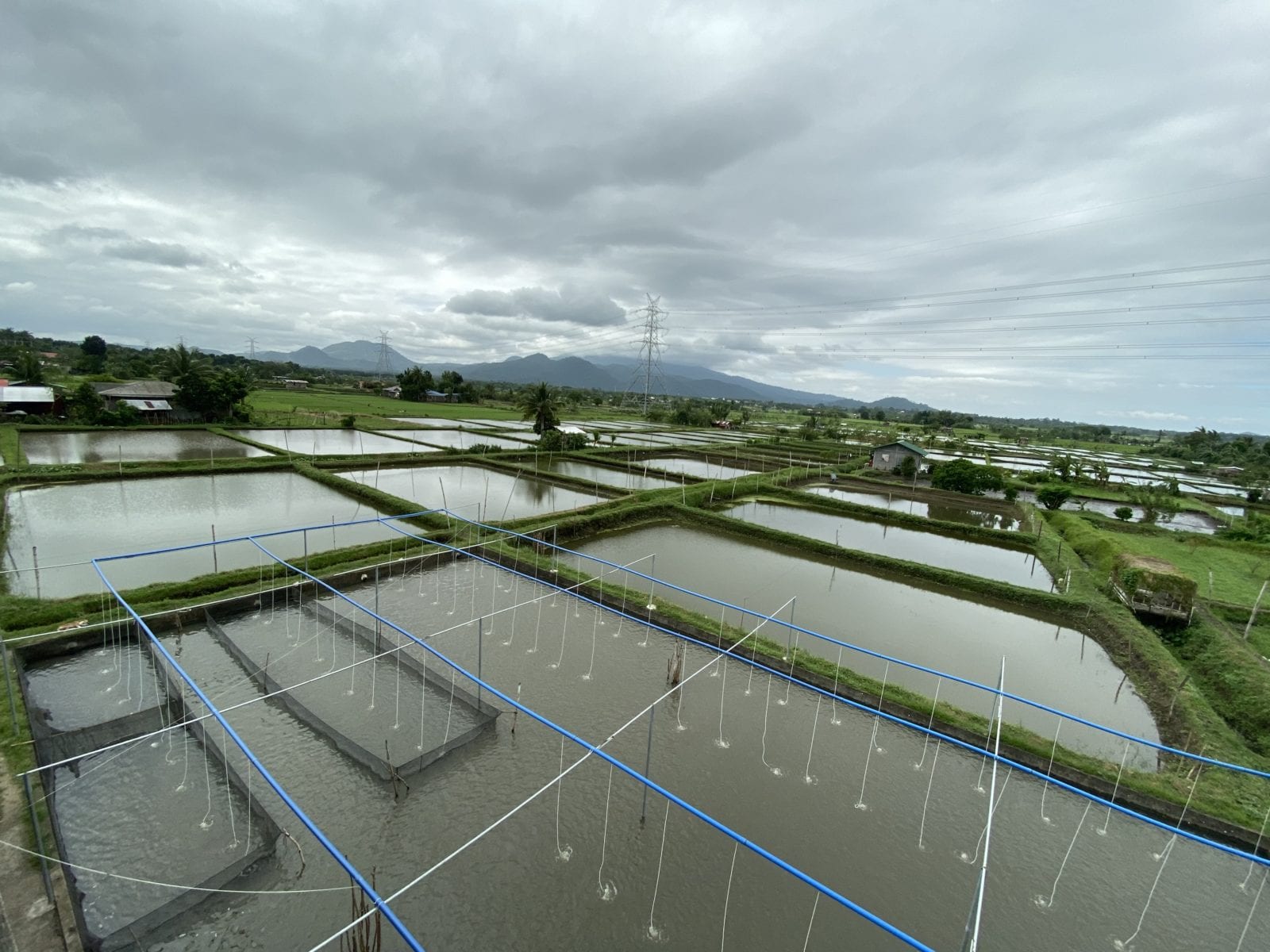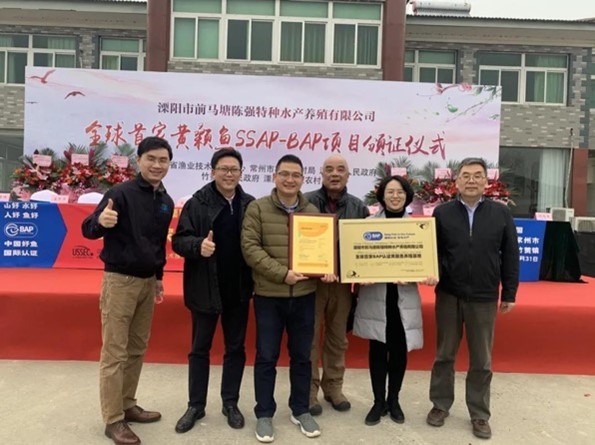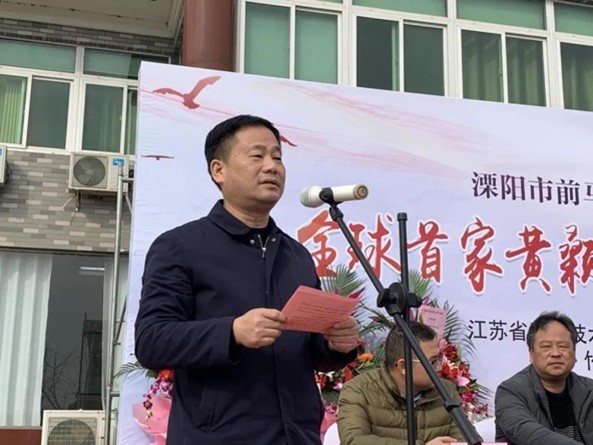World’s First Yellow Catfish Farm Successfully Certified with SSAP-BAP in China
- Category:
- Aquaculture

China’s aquaculture production, which for decades has been the world’s largest, continues to grow at a fast annual clip. In 2019, the country’s total aquaculture production reached over 50 million metric tons (MMT). The industry, however, has been troubled for many years by quality and safety issues resulting from inadequate farm management and uneven government supervision. While some fish farmers have tried to improve their production to grow high-quality aquaculture products, they have been unable to receive prices to match the quality of their products.
For more than 20 years, the Chinese government has advocated heath-oriented aquaculture and looked to solve this ongoing issue. To help these farmers and provide an example of good-price-for-good-fish to the industry, USSEC, working with the Global Aquaculture Alliance (GAA) and a local fish farm/feed mill, initiated a project aimed at resolving this problem. In early 2020, Liyang Chen Qiang Special Aquaculture Products Farm in Jiangsu Province was recommended to USSEC as a partner for this endeavor. The farm specializes in the production of yellow catfish, a popular Chinese species with a total production of 700 million fry/fingerlings annually, about 25% of the nation’s total. In addition to fry/fingerling production, it also produces growout fish in relatively up-to-date facilities, including the In Pond Raceway System (IPRS), first introduced to China by USSEC in 2013. Liyang Chen Qiang is a large, influential farm in the region and its owner had the passion and determination to seek certification. These qualities also factor into endorsement and support from the local government.
In early 2021, Liyang Chen Qiang became the first yellow catfish farm in the world to earn aquaculture certification from the U.S. Soy Sustainability Assurance Protocol (SSAP) and Best Aquaculture Practices (BAP). USSEC provided technical support in terms of improving aquaculture practices and a partial subsidy for receiving SSAP-BAP certification, which provides multiple benefits for all involved parties:
On January 31, 2021, a plaque-grant ceremony for successful SSAP-BAP certification was conducted at Chen Qiang Special Aqua Products Farm. Representatives from USSEC’s Shanghai office, GAA’s China office, and local government officials were invited to and took part in this ceremony.
With the successful certification, USSEC’s next steps include:
By executing this pull-push activity, USSEC aims for more Chinese feed mills and farms to have increased awareness of the true intrinsic value of U.S. soybeans, as well as U.S. Soy’s commercial value in the market. In 2021, USSEC China’s goal is to have a minimum of two to three feed mills sign MOUs with USSEC, committing to use no less than 60% of U.S. soy products and to have a minimum of an additional four farms become certified.

